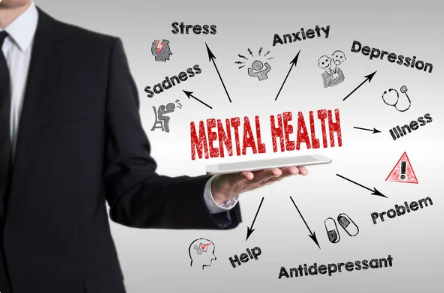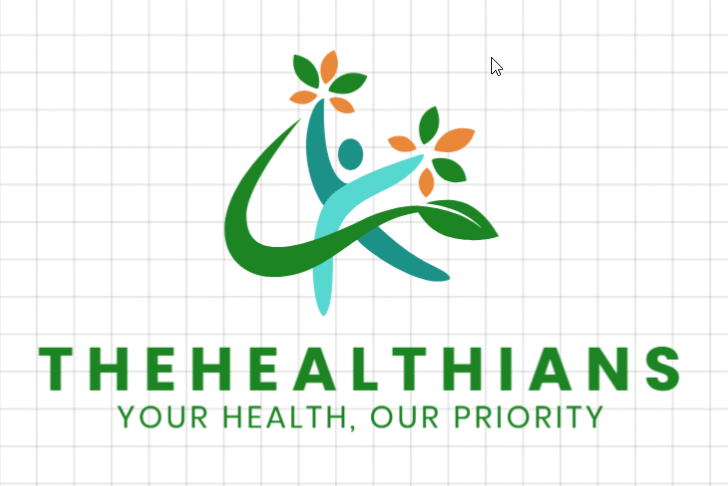
Table of Contents
ToggleIntroduction: The Quiet Pillar of Wellness
In the noise of modern life, it’s easy to focus on physical health—what you eat, how much you exercise, and whether your medical reports are normal. But behind every heartbeat and breath is something less visible, yet equally essential: your emotional and psychological well-being.
Mental health isn’t just about the absence of illness. It’s about how you think, feel, and function daily. It’s what enables you to enjoy life, connect with others, and cope with stress. Sadly, many people ignore this vital aspect of wellness until they’re overwhelmed or burnt out.
In this blog, we’ll explore what is mental health, delve into why is mental health important, and uncover practical strategies and supportive resources—from legal frameworks to mental health tips—that help strengthen the mind.
Let’s begin a journey of awareness, empowerment, and healing—because mental health matters more than ever before.
1. What Is Mental Health? Understanding the Basics
Let’s break it down. Mental health refers to your emotional, cognitive, and social well-being. It influences:
How you process emotions like joy, anger, fear, and sadness
How you form and maintain relationships
How you respond to stress, make decisions, and plan your life
It’s not about being “happy” all the time. Instead, it’s about flexibility—the ability to feel a range of emotions without losing balance.
In today’s world of constant information, stress, and uncertainty, nurturing your mental resilience is just as crucial as protecting your physical body.
2. Why Is Mental Health Important? The Ripple Effect
If you’ve ever asked, “why is mental health important?”, the answer lies in how interconnected it is with every aspect of your life.
Your state of mind affects:
Physical health: Stress and emotional imbalance can lead to heart disease, obesity, weakened immunity, and chronic conditions.
Relationships: Communication, trust, and empathy all begin in the mind.
Career and studies: Focus, motivation, and decision-making depend on mental clarity.
Crisis response: From financial problems to loss or failure, your response is shaped by emotional resilience.
In short, your mind powers your life. When it’s strong, you thrive. When neglected, everything else begins to crumble—even if your physical health seems “normal.”
3. The Reality of Mental Health Disorders
Globally, millions suffer from mental health disorders—often in silence due to stigma, ignorance, or inaccessibility of care.
Some common disorders include:
Depression: Persistent sadness, fatigue, and lack of interest in life
Anxiety disorders: Excessive fear, panic, and worry affecting daily function
Post-Traumatic Stress Disorder (PTSD): Trauma response after distressing events
Bipolar Disorder: Extreme mood shifts from highs (mania) to lows (depression)
Schizophrenia: Distorted thinking, perception, and behavior
These are not weaknesses or character flaws. They are legitimate medical conditions that deserve the same level of care and compassion as physical illnesses.
Early diagnosis and treatment, such as mental health therapy, can greatly improve outcomes and prevent further complications.
4. Mental Health Awareness: Changing the Conversation
Creating a world where emotional well-being is normalized starts with mental health awareness.
Why does awareness matter?
It reduces stigma so people can speak openly
It encourages early intervention before problems escalate
It helps people recognize signs in themselves or loved ones
It builds compassionate communities and stronger support networks
Campaigns in schools, offices, and media help reshape public perception. Celebrities, athletes, and influencers now openly share their struggles, helping normalize conversations about therapy and self-care.
Awareness doesn’t just save lives—it enriches them.
5. The Mental Health Act 1987: A Step Toward Justice
In India, the Mental Health Act 1987 was a foundational legal step toward protecting people facing psychological disorders.
Key objectives of the act included:
Regulating the admission of individuals into psychiatric hospitals
Ensuring humane treatment of patients
Preventing unlawful detention and abuse
Promoting rights and dignity for all individuals with mental illness
While this law was progressive for its time, it was eventually replaced by the Mental Healthcare Act 2017, which expanded rights and accessibility. The 2017 act notably decriminalized suicide, recognized the right to mental care, and emphasized patient consent and autonomy.
Understanding the legal landscape helps individuals advocate for themselves and their loved ones—and ensures that emotional health is recognized as a human right.
6. Practical Mental Health Tips to Strengthen the Mind
You don’t need a diagnosis to begin improving your emotional well-being. These mental health tips can be incorporated into any lifestyle, at any age:
a. Get Enough Sleep
Lack of sleep increases stress hormones and worsens emotional regulation. Aim for 7–9 hours of rest each night.
b. Eat a Brain-Friendly Diet
Include leafy greens, omega-3-rich foods like walnuts and fish, berries, and whole grains. Avoid excess caffeine, sugar, and processed food.
c. Move Daily
Exercise boosts serotonin and dopamine—natural mood stabilizers. Even a 20-minute walk can reduce anxiety.
d. Disconnect to Reconnect
Limit screen time. Take regular breaks from social media and news. Nature walks or hobbies can restore mental energy.
e. Practice Mindfulness
Use meditation apps, breathing techniques, or simply sit in silence. A few minutes of stillness every day can build resilience.
f. Journal
Writing down your thoughts offers perspective and emotional clarity.
g. Talk It Out
Don’t bottle things up. Share with a friend or seek professional help when things feel heavy.
These strategies aren’t quick fixes—but over time, they build lasting strength.
7. Mental Health Therapy: A Path to Growth
Engaging in mental health therapy can transform lives. Whether through a psychologist, psychiatrist, or counselor, therapy provides:
A safe space to explore complex emotions
Tools for managing stress, grief, and trauma
Cognitive techniques to reshape negative thinking
Strategies to improve relationships and communication
Therapy is not only for crises. It’s for self-discovery, healing, and building coping mechanisms. Options today include:
Cognitive Behavioral Therapy (CBT)
Psychodynamic therapy
Group therapy
Online therapy platforms
Taking that first step can be daunting, but it’s an act of courage—not weakness.
8. World Mental Health Day: A Global Reminder
Observed every year on October 10th, mental health day is a powerful reminder of our collective responsibility.
This global campaign, supported by the World Health Organization, aims to:
Highlight global mental health challenges
Promote accessible support services
Advocate for government policy and funding
Encourage community action
On this day, many participate in walks, online campaigns, support groups, and seminars. It’s not just symbolic—it’s a personal check-in and a public call for change.
Ask yourself: “How am I doing mentally?” Then, reach out or offer support to someone else.
9. Your Role: Why Mental Health Matters More Than Ever
Whether you’re a parent, student, teacher, manager, friend, or caregiver—you play a part in creating a mentally healthy society.
Here’s how you can help:
Check in: Ask meaningful questions. Listen without judgment.
Support, don’t shame: Don’t minimize someone’s experience.
Model good habits: Show that it’s okay to take breaks, talk about emotions, or seek therapy.
Educate yourself: Understand warning signs of mental health disorders and how to respond.
Speak up: Advocate for support programs in schools and offices.
Because when we care about emotional health as much as physical health, everyone benefits.
And yes, your story, your actions, and your care matter too—because mental health matters.
Final Thoughts: It Starts With One Small Step
You don’t have to overhaul your life to improve your emotional well-being. Even one small, consistent habit can be a catalyst for real change.
Go for a 15-minute walk
Say no to one extra obligation this week
Write down your thoughts before bed
Book that therapy appointment
Share this post with someone who needs it
Each step is a declaration: “I care about my mind.”
Explore our Good Health: 11 Simple Habits for a Better Life blog to continue building strong, balanced routines.

3 thoughts on “Mental Health: 9 Powerful Reasons Why It Deserves Your Daily Attention”